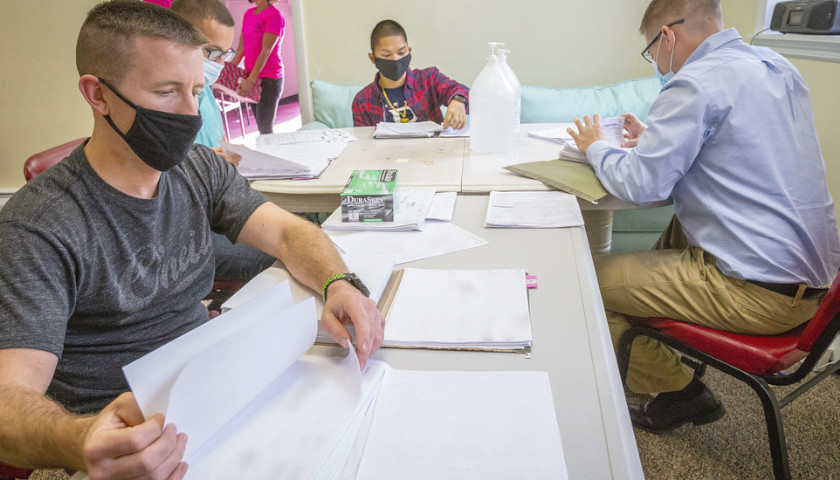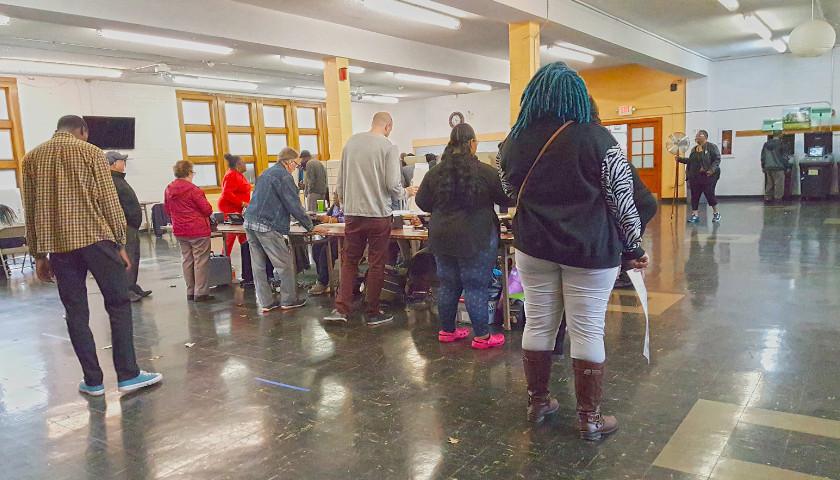Every two years, the Arizona Secretary of State is required by law to update the state’s Election Procedures Manual (EPM), but similarly to what happened in 2021, the process is not going smoothly. After reviewing the proposed changes Secretary of State Adrian Fontes suggested making to the EPM, State Senate President Warren Petersen (R-Mesa), accompanied by Speaker of the House Ben Toma (R-Peoria), issued a statement on Monday threatening legal action.
“Our current Secretary of State has a history of distorting our elections laws and pushing the envelope on questionable procedures,” Petersen said, referring to Fontes’ previous tenure as Maricopa County Recorder. “My hope is that he will update the EPM with our corrections before submitting to the Attorney General and Governor for approval. Failure to do so will result in legal action.”
In 2021, then-Secretary of State Katie Hobbs changed the EPM that then-Attorney General Mark Brnovich warned “could lead to criminal penalties.” Hobbs refused to back down, so the state has been using the 2019 version since then, out of compliance with the law.
When Fontes (pictured above) served as Maricopa County Recorder, he attempted to mail unrequested ballots to voters. Brnovich went to court and successfully got an injunction to stop him.
Petersen and Toma listed their objections in a letter to Fontes.
One of the “most notable errors” Petersen cited was Fontes’ refusal to implement a 2021 law in the EPM which cleans up voter rolls. It would “prevent voter fraud by requiring county recorders to remove any voters registered on the active early voter list who have not cast a ballot during two consecutive election cycles and have not responded to notification from the recorder that they wish to continue participation.”
Instead, “he continues to perpetuate the issue of ballots being sent to the homes of voters who may have moved or no longer wish to participate in this process, opening the door for ballots getting into the hands of unintended individuals.”
A second change the pair objected to would prohibit counties from hand-counting ballots.
Another would continue using ballot drop boxes, which “have no basis in statute.” The lawmakers added, “Ballot drop boxes encourage illegal ballot harvesting and could present security risks.”
A third objection stated, “The Secretary does not have the legal authority to regulate voter registration procedures or deadlines on his own accord.”
A fourth change the pair had problems with was extending the early voting period for UOCAVA voters — Uniformed and Overseas Citizens Absentee Voting Act — something they said Fontes did not have the authority to do. Fifth, the lawmakers said the draft “ignores directives from a law passed this year requiring instructions of Arizona’s prohibition on illegal ballot harvesting to be provided to voters who are casting early ballots.”
Another objection cited the removal of the requirement that county recorders make a copy of voters’ proof of citizenship, a violation of A.R.S. 16-166. Instead, Fontes’ draft said they could merely glance at the proof.
The pair condemned the changes criminalizing certain types of behavior at the polls.
“In an extraordinary expropriation of the legislative power, the draft EPM purports to criminalize wide swaths of speech and conduct that you speculate might be ‘considered intimidating,’ to include using ‘offensive language’ (whatever that means) at a polling location, ‘[f]ollowing’ individuals at a polling location (which, it bears emphasis, is a public place), or disseminating even truthful information about ‘voter fraud,’ if done in a manner that is, to your sensibilities, ‘harassing or intimidating,’” they said.
Finally, the lawmakers observed that the “Secretary deliberately shortened the typical public comment period on the EPM from one month to two weeks, limiting meaningful feedback.”
State Representatives Steve Montenegro (R-Goodyear) and Michael Carbone (R-Buckeye) issued their own letter to Fontes on August 15, expressing concern that Fontes refused to extend the public comment period. They sent him a letter previously requesting the extension. The two justified their request, “As you have publicly stated, we live in ‘an atmosphere of heightened scrutiny of our elections.’”
The lawmakers reiterated concerns cited by Petersen and Toma:
As you know, many legal errors have already been identified in the current draft 2023 EPM. example, the draft EPM unlawfully: (1) directs county officials to provide instructions to voters that contradict A.R.S. § 16-610 and -611 (pages 58-59); (2) purports to establish new crimes not found in Arizona’s Criminal Code (pages 175-76); and (3) gratuitously opines on a county’s statutory authority to conduct hand count audits (page 213, footnote 56). Chapter 1 of the draft EPM should be deleted in its entirety because Arizona law does not authorize you to regulate voter registration processes.
Montenegro and Carbone urged Fontes to publish contributed comments regarding the draft on the secretary of state’s website.
The grassroots organization EZAZ found over 335 issues with the draft EPM.
One of the fixes they recommended was “Stopping ESG/DEI policies from determining where vote centers/precinct polling locations will be located.”
Another suggested revision was “Preventing backdoor internet connection to EMS machines. The legislature and the former AG have shot down these policies twice already. Fontes put them back in.”
EZAZ warned, “These are not your childhood Democrats we are dealing with here.”
– – –
Rachel Alexander is a reporter at The Arizona Sun Times and The Star News Network. Follow Rachel on Twitter. Email tips to [email protected].
Background Photo “Arizona Capitol” by Gage Skidmore. CC BY 2.0.





